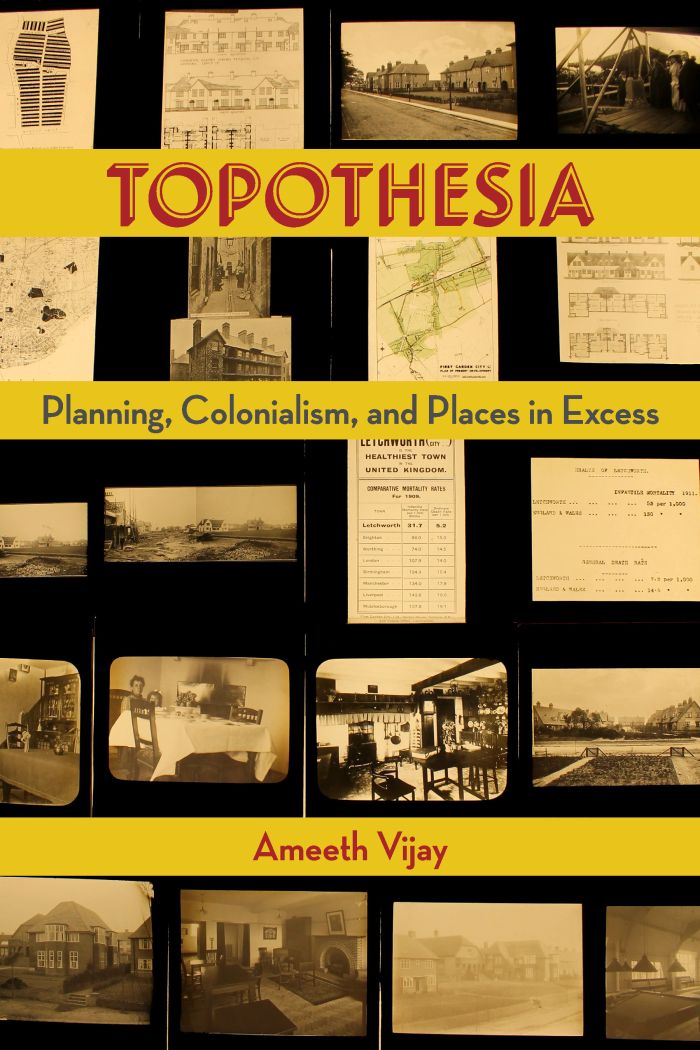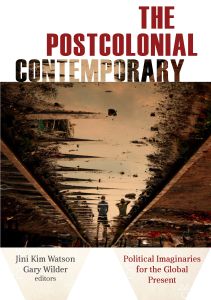Topothesia
Planning, Colonialism, and Places in Excess

This book can be opened with

SHORTLISTED, 2024 MSA FIRST BOOK PRIZE
Topothesia reads urban planning as a mode of speculative fiction, one inextricably linked to histories of British colonialism and liberalism through a particular understanding of place. The book focuses on town planning from the late nineteenth century to the present day, showing how the contemporary geography of Britain—sharply unequal and marked by racial division—continues ideologies of place established in colonial contexts. Specifically, planning allows for the speculative construction of future places that are both utopian in their ability to resolve political disagreement and at the same tantalizingly realizable, able to be produced in concrete reality. This speculative imaginary, I argue, is only possible within the ideological framework of colonialism and the history of empire within which it developed.
Topothesia refers to a rhetorical device employing the vivid depiction of an often-imaginary place. This device, Vijay shows, helps us understand urban planning as a narrative genre, one that, even in its most mundane documents, is compelled to produce elaborate fantasies of future places. The book examines specific planning movements over time to understand the form and the stakes of their speculative worlds. In building these worlds, the book shows, planners continually coopted literary critiques of the present and reveries of the future, retaining literature's aesthetics while eschewing its politics. At the same time, Vijay shows, writers and artists have dwelled within and against these colonial imaginaries to seek other means of representing place.
Topothesia joins a growing body of urban studies and critical geography-influenced cultural critique that is making waves not just in academic study but well beyond, in zones of activism, public writing, and even university critique. Vijay fleshes out colonial and neocolonial continuities between time periods in policy, ethos, and language.—Anjuli Raza Kolb, University of Toronto
Vijay’s book is ambitious and wide-ranging, covering documentaries, architectural design manuals, theories of planning, and advertisements, in addition to realist novels. The book participates in, and pushes in new directions, critical practices in literary studies by drawing together cultural objects across modernist and postcolonial eras and challenging periodizing models that separate these.—Nicole Rizzuto, Georgetown University
Introduction | 1
Part I: Improving Places: Liberal Colonialism and the Speculative Imaginary of Early Planning
1. Garden Cities: The Art and Craft of Making Place in Edwardian Britain | 31
2. Planning as Imperial Cultivation in the Work of Patrick Geddes | 60
Part II: Diminishing Horizons: The Ambivalent Temporalities of Development
3. Capturing the City: Regeneration, Policing, and the Ghosts of Postcolonial Britain | 95
4. The End of London: Temporalities of the Gentrified City | 126
5. Level Up: Zadie Smith’s NW and the Promise of Progression | 158
6. Geographies of Discontent: Brexit and the Politics of Abandonment | 185
Coda | 215
Acknowledgments | 221
Notes | 225
Bibliography | 285
Index | 308





